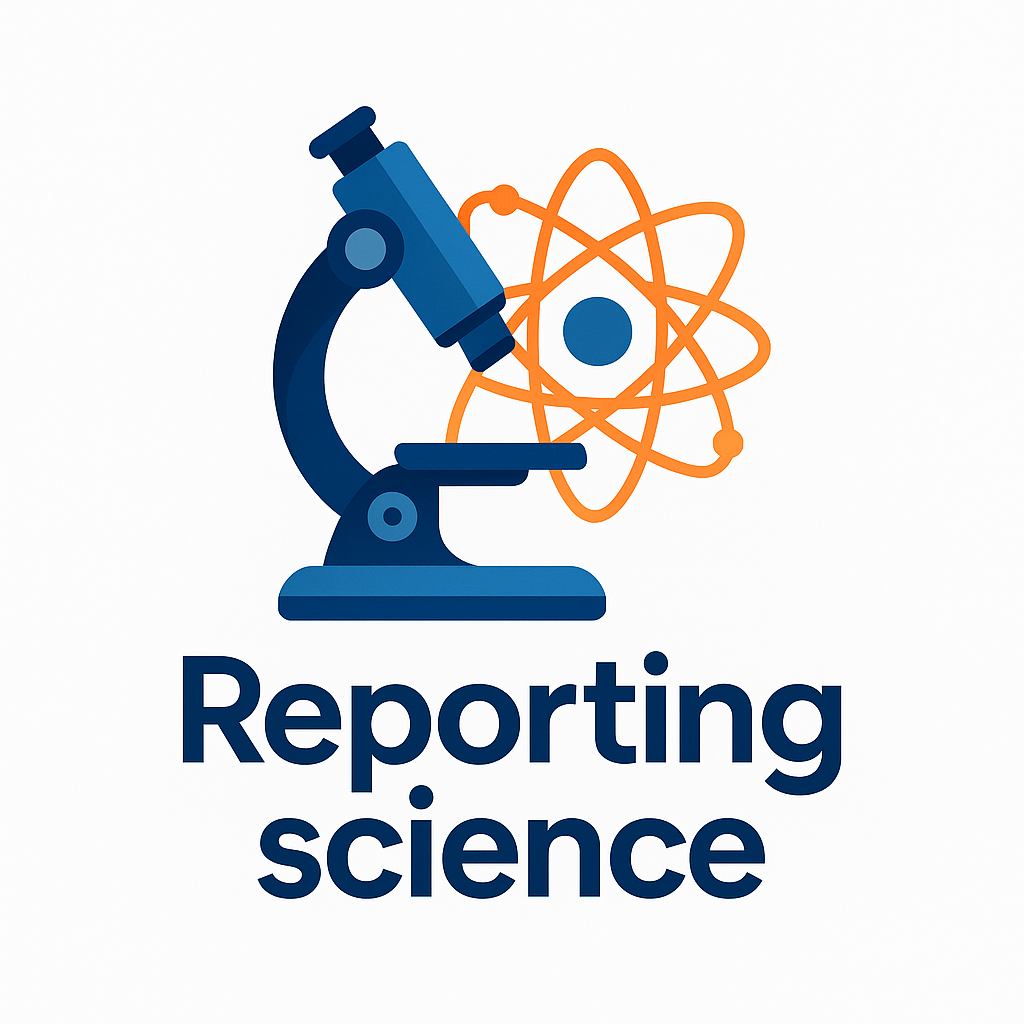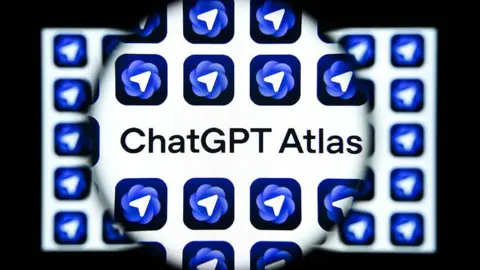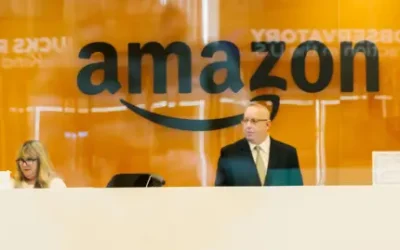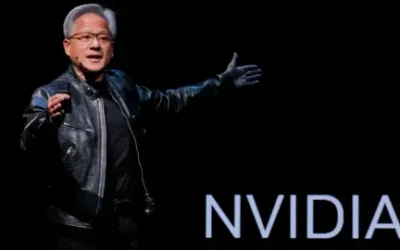Barely minutes after launching ChatGPT Atlas, OpenAI’s new internet browser, a significant operational challenge quickly materialized.
In a stark departure from conventional web browsing, this new system offers an innovative approach, diverging significantly from popular platforms like Google Chrome, which currently commands roughly 60% of the global browser market. Rather than a traditional interface, the entire experience is built around an interactive chatbot, designed for users to engage in conversation to navigate and explore the internet.
System users encountered immediate technical hurdles, with one notification warning of a reached messaging limit, while a separate alert indicated that available models lacked support for the tools currently in use.
Users operating on the complimentary GPT-5 tier have reached their allocated usage limit.
OpenAI has articulated its ambition to fundamentally enhance internet usability, promising a more streamlined and efficient online experience for users. The artificial intelligence research firm characterizes this initiative as a pivotal step forward in its long-term vision to create what it describes as a “true super-assistant.”
The integration of digital assistants, regardless of their sophistication, entails significant financial investment. Consequently, the company faces the imperative of substantially boosting revenue generation from its 800 million users.
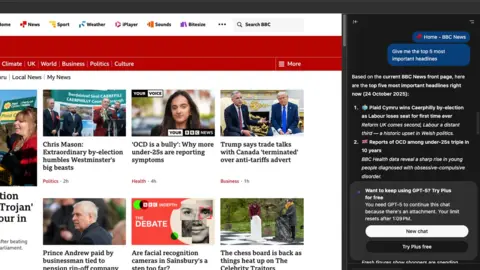
OpenAI is contending that its new Atlas platform offers a groundbreaking opportunity to fundamentally redefine how we interact with the internet.
Initially, the platform’s interface presents a familiar appearance, echoing the sleek designs of popular web browsers such as Google Chrome or Apple’s Safari. What truly distinguishes it, however, is the prominent integration of a sidebar chatbot.

An online rail ticketing platform presented users with distinct options to enhance their booking experience. Travelers could choose to have the system prominently display available discounts and special promotions, or leverage a feature designed to compare ticket prices against those offered by other providers, facilitating a comprehensive market analysis to secure the best possible fare.
A user attempting to book train travel through ChatGPT was informed that this specific functionality is exclusively available to its paid subscribers. This indicates a tiered service model where certain features are reserved for premium users of the AI platform.
Subsequently, I opted for a more straightforward test. My request: to pinpoint an article I had recently read, despite my inability to recall its specific host website.

While the current landscape is still nascent, there is significant potential for a fundamental reshaping of how we interact with the internet.
Here are a few options, maintaining a clear, journalistic tone:
**Option 1 (Direct and Professional):**
“This will unequivocally be a premium product, requiring a subscription to unlock its full capabilities.”
**Option 2 (Slightly more formal, emphasizing functionality):**
“It is evident that this high-end offering will only deliver its complete functionality through a paid subscription.”
**Option 3 (Concise and impactful):**
“Undoubtedly, this premium product’s maximum potential will be accessible solely via a recurring subscription.”
Here are a few options, maintaining a clear, journalistic tone:
**Option 1 (Focus on deeply ingrained habits):**
“Overcoming the deeply ingrained custom of free internet access would necessitate a profound and widespread alteration of how most people engage with online content.”
**Option 2 (Emphasizing the behavioral shift):**
“Given the prevalent expectation of complimentary online browsing, transitioning away from this model would demand a significant, widespread recalibration of user behavior.”
**Option 3 (Concise and direct):**
“The public’s ingrained reliance on free internet services means that any move towards paid access would require a dramatic shift in their digital consumption habits.”
**Option 4 (More formal):**
“A fundamental reorientation of digital consumption habits would be required, as users have become profoundly accustomed to accessing online content without charge.”

From its inception, OpenAI set forth an ambitious mandate: to develop artificial general intelligence (AGI). This foundational objective envisions an AI system capable of replicating the full scope of human intellect.
To understand how a web browser advances that specific mission, it’s crucial to recognize its fundamental role as the primary interface to the internet. Depending on the precise objectives, a browser typically facilitates key functions such as:
* **Accessing Critical Information:** Providing a gateway to research, data, news, and specialized online resources essential for informed decision-making and task completion.
* **Enabling Communication & Collaboration:** Hosting web-based tools for email, video conferencing, project management, and document sharing, which are vital for team coordination and external engagement.
* **Utilizing Specialized Applications:** Running web applications that may be central to the mission, whether for data analysis, content creation, operational management, or other specific functionalities.
* **Facilitating Outreach & Engagement:** Serving as the platform for publishing information, interacting with audiences, or collecting feedback, depending on the mission’s public-facing aspects.
While not fulfilling its primary objective, the initiative could nonetheless generate significant revenue.
Having successfully secured billions of dollars in backing from venture capitalists and other investors, the firm is now under considerable pressure to demonstrate a substantial return on that significant capital investment.
Here are several options, maintaining a clear, journalistic tone:
**Concise & Direct:**
* “Ultimately, the enterprise must prove its financial viability.”
* “A critical requirement for its success is the generation of a sustainable profit.”
* “The primary objective is to achieve profitability.”
**More Engaging/Explanatory:**
* “For the project to succeed and endure, it must establish a clear path to profitability.”
* “Its long-term existence hinges on its ability to generate significant revenue.”
* “The fundamental objective is to generate revenue and ensure financial self-sufficiency.”
* “Simply put, the venture needs to achieve a positive financial return.”

Here are a few ways to paraphrase that text, maintaining a clear, journalistic tone:
**Option 1 (Direct and Concise):**
“However, generating revenue through the internet’s traditional advertising model could present a significant risk.”
**Option 2 (Emphasizing the precarious nature):**
“Nevertheless, relying on the established online method for monetization—advertising—may prove to be a precarious strategy.”
**Option 3 (Focus on the potential pitfall):**
“The conventional path to funding online, an advertising-centric approach, carries inherent risks that warrant careful consideration.”
**Option 4 (More active phrasing):**
“Venturing down the internet’s established path of revenue generation through advertising could expose the initiative to considerable financial peril.”
Stephanie Liu, a senior analyst at Forrester, highlights the strategic tightrope OpenAI must walk. While the company might be tempted to introduce advertisements to offset expenses and secure profits, it is equally crucial for them to prioritize an outstanding user experience. This, Liu asserts, is fundamental for OpenAI to differentiate itself and thrive in a highly competitive market.
OpenAI’s ambition to convert its vast ChatGPT user base into paying subscribers faces a significant challenge. Despite hopes that the AI chatbot’s appeal would drive widespread adoption of premium plans, a Financial Times report reveals that only around 5% of users currently pay for a subscription.
Furthermore, Atlas offers the firm the potential to access an enormous trove of user data.
Here are several ways to paraphrase the text, maintaining its core meaning with a unique, engaging, and journalistic tone:
**Option 1 (Focus on the core principle):**
“A fundamental principle guiding many contemporary AI systems is the critical role of scale. It’s widely understood that the more data these tools process, the more refined and effective their capabilities become.”
**Option 2 (Emphasize the correlation):**
“These artificial intelligence tools are largely predicated on the idea of scale; the prevailing theory suggests a direct correlation between the volume of data they consume and the enhancement of their performance.”
**Option 3 (Concise and direct):**
“The efficacy of these AI systems is largely determined by scale. The common assumption is that their capabilities sharpen significantly as they are trained on increasingly larger datasets.”
**Option 4 (Highlighting the strategy):**
“The development strategy for many AI platforms centers on scale, operating on the premise that greater data input directly translates to improved functionality and accuracy.”
Given the internet’s fundamental design for human interaction, an AI system like Atlas can significantly enhance its ability to navigate complex digital processes. By observing how users complete tasks—such as booking train tickets online—the AI can learn and optimize its approach to mastering similar web-based operations.
Ms. Liu expressed concern regarding the unspecified ways OpenAI might use user data collected via Atlas. She warned that for individuals who prioritize anonymity and privacy, this uncertainty could render the browser too significant a risk.

Our analysis now pivots to the competitive arena.
Google Chrome’s overwhelming market dominance is increasingly drawing the attention of global regulatory bodies, who are now scrutinizing its position and frequently raising concerns about potential monopolistic practices.
—
Here are a few alternative options, maintaining the same core meaning and tone:
* The commanding market share held by Google Chrome is prompting antitrust authorities worldwide to express growing concern, with some even using the term “monopoly” to describe its pervasive influence.
* Global regulators are increasingly casting a critical eye on Google Chrome’s unparalleled market dominance, with the term “monopoly” now frequently surfacing in official discussions.
* Concerns are mounting among international authorities regarding Google Chrome’s market supremacy, leading to heightened scrutiny and discussions that often invoke the specter of a monopoly.
Entering that fiercely contested market will require substantial effort and strategic maneuvering.
In a significant push for AI integration, Google has officially embedded its advanced Gemini AI directly into its search engine experience. This development parallels Microsoft’s strategy, which has seen the Copilot AI assistant integrated seamlessly into its Edge web browser, bringing sophisticated AI capabilities to users right within their browsing environment.
Upon its initial release, ChatGPT quickly earned a striking nickname: the “Google killer.” This bold designation reflected a widespread prediction that the revolutionary AI technology would fundamentally transform—and ultimately render obsolete—the traditional online search paradigm.
While the anticipated development has yet to materialize, Erik Goins, founder of the app development firm Flywheel Studios, believes its realization remains a strong possibility.
The perspective articulated suggests that Google’s business was fundamentally built on its role as the essential intermediary connecting users with online information. ChatGPT, by contrast, is described as entirely bypassing this traditional middleman function.
The traditional approach of searching for ‘hotels in Miami’ and then manually sifting through Google’s various search results is no longer the dominant method, he indicated.
Engaging directly with ChatGPT immediately facilitates a connection.
The market’s appetite for paying a premium for marginal convenience remains an open question. Crucially, Google’s formidable market dominance means any genuine challenge to its supremacy is still a distant prospect.
